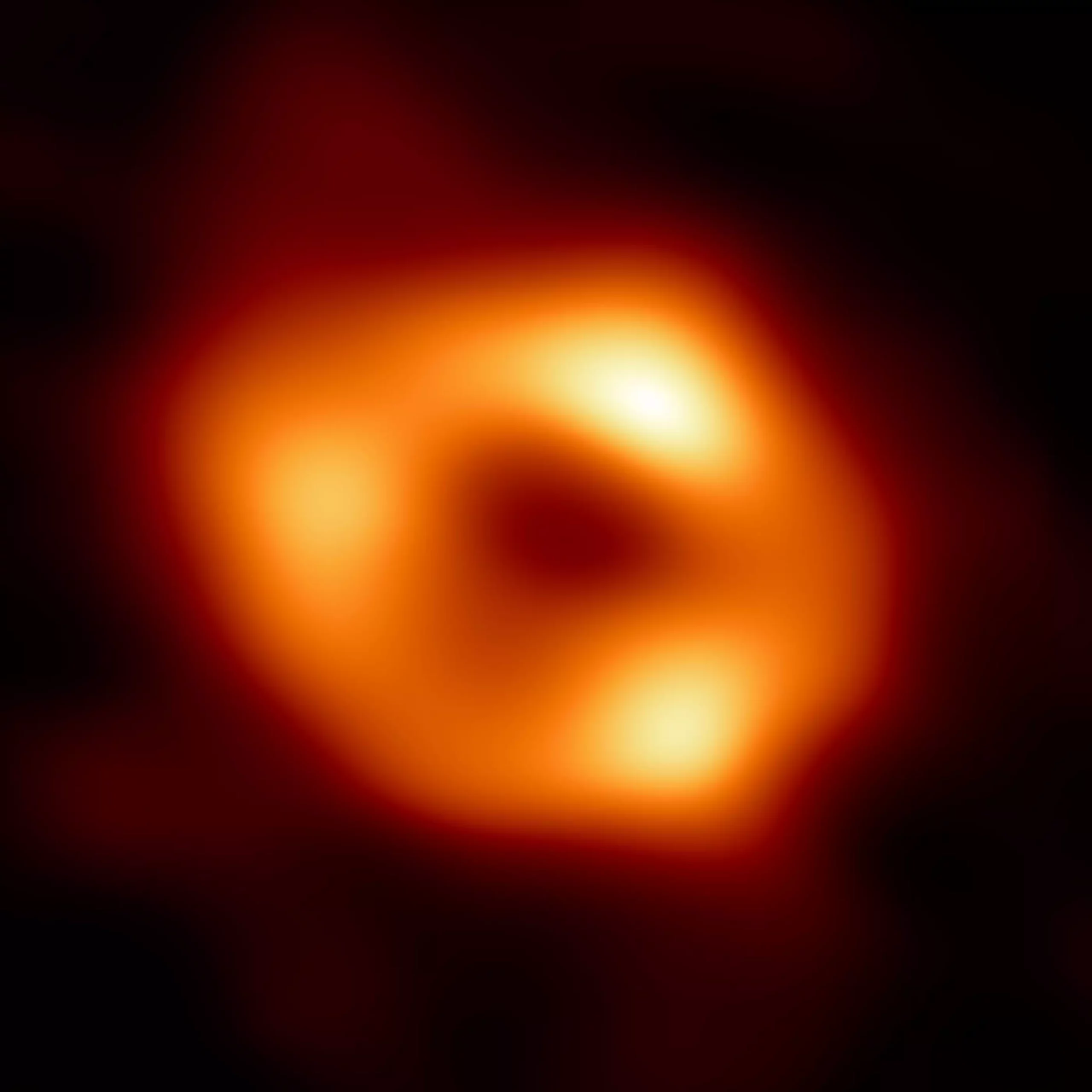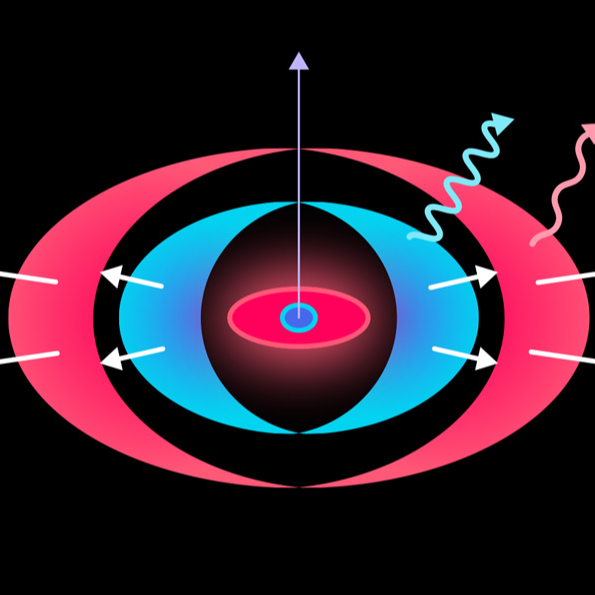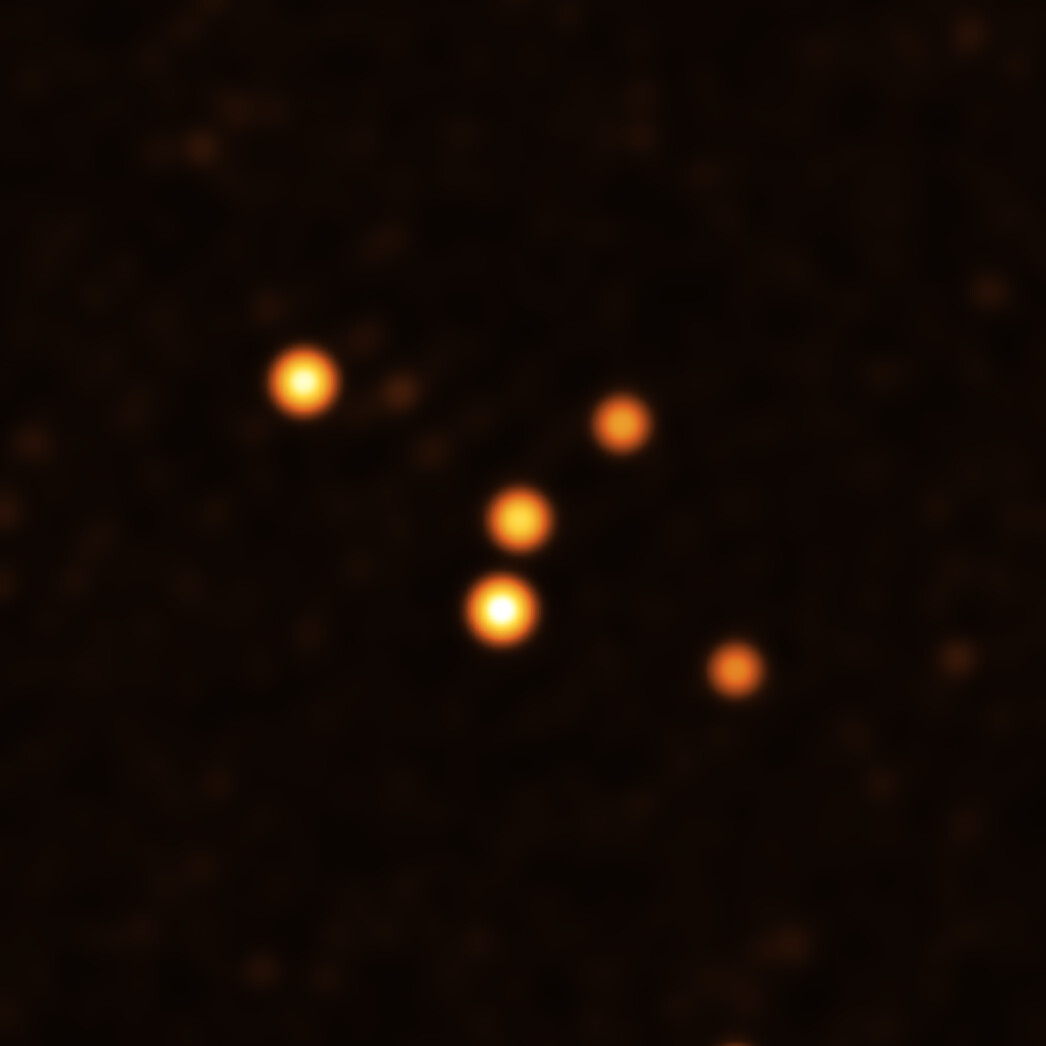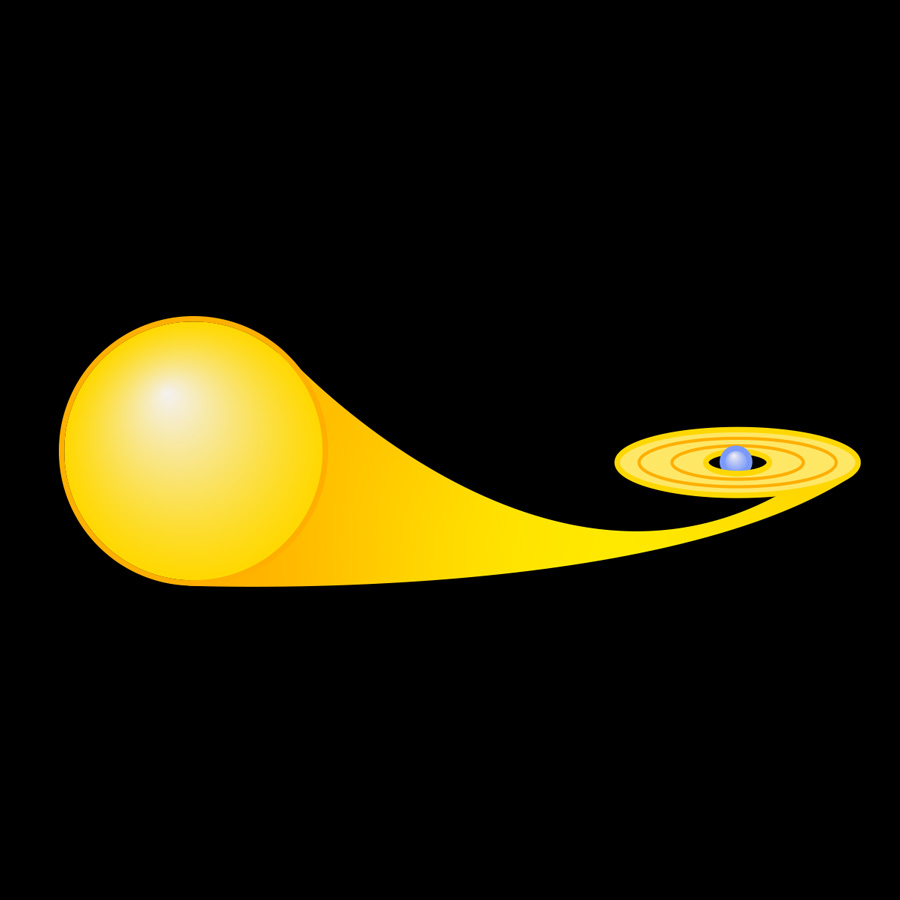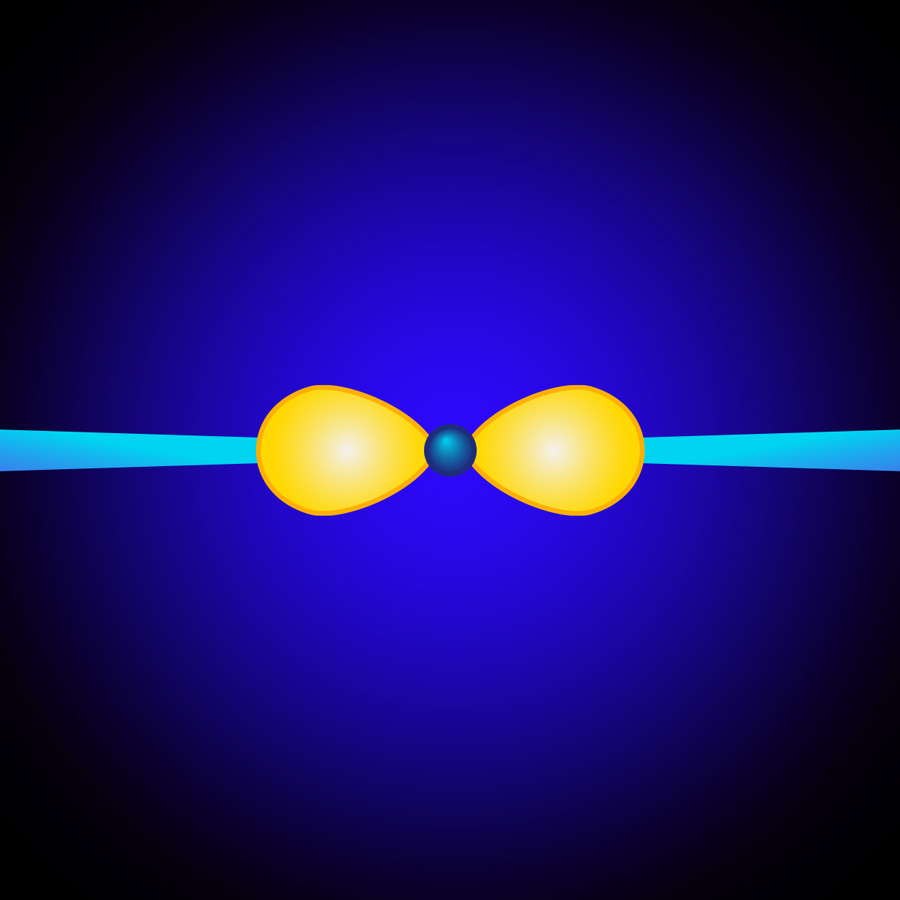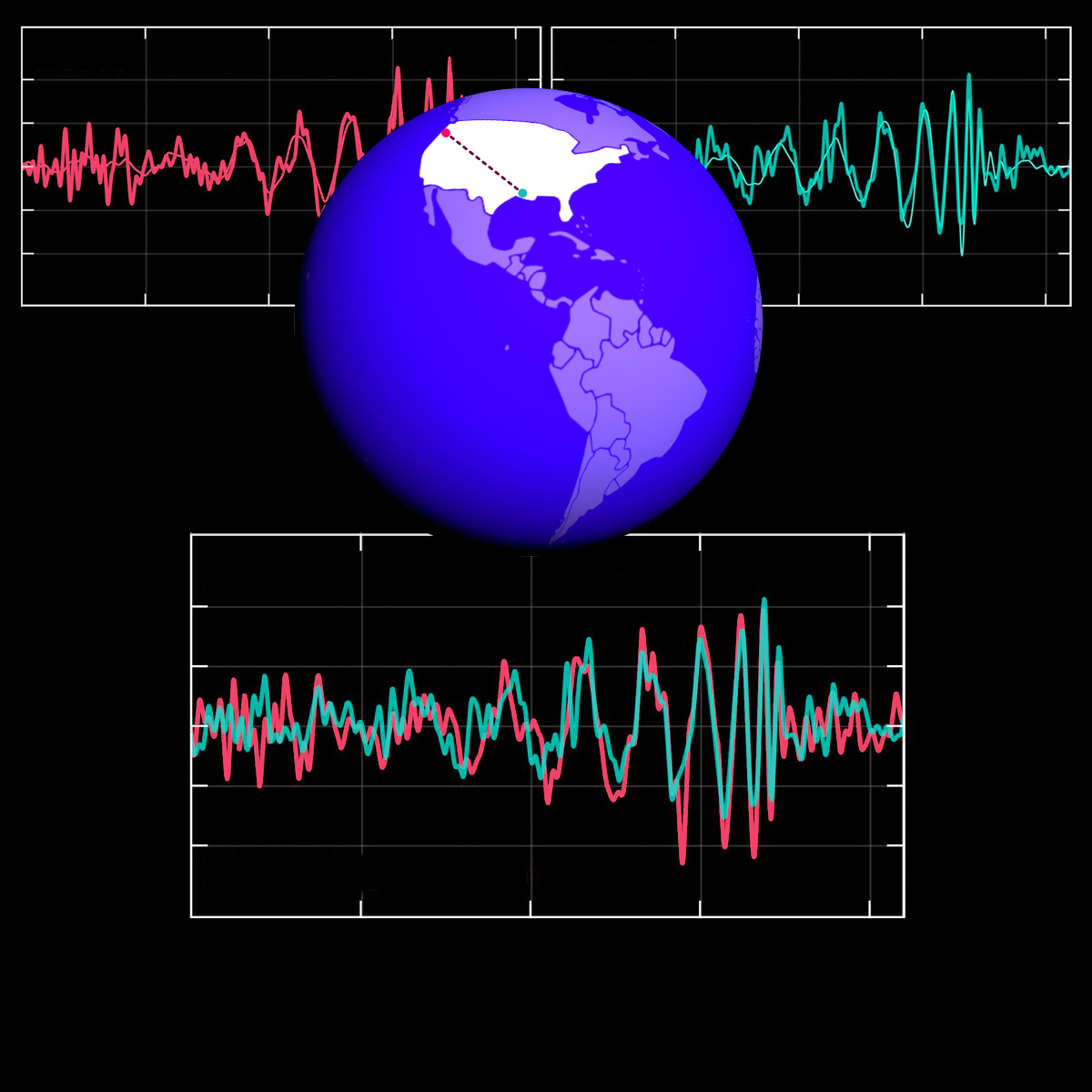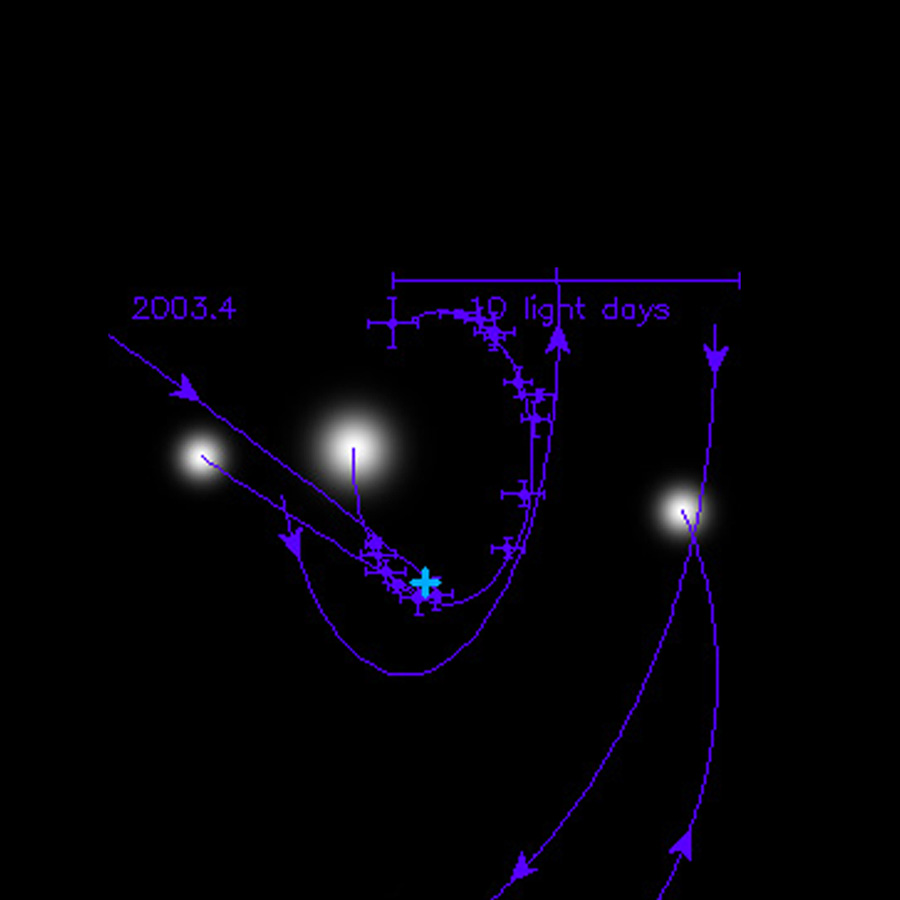How to track compact objects
More about the gravitational influence of black holes and neutron stars on their cosmic surroundings, from the orbits of nearby stars to accretion disks and the associated luminous phenomena.
First measurement of gravitational waves of colliding neutron stars
Not only merging black holes, but also neutron star pairs emit gravitational waves.
How the Event Horizon Telescope observes black holes
Researchers use the Event Horizon Telescope to observe black holes at the centers of galaxies with high resolution.
Multi-messenger astrophysics and numerical relativity
During neutron star mergers, both gravitational wave and electromagnetic signals are emitted. This could help solve long-standing issues in basic physics research with multi-messenger astrophysics.
Deep looks into the center of the Milky Way
The black hole at the center of our galaxy reveals itself through the stellar motions in its vicinity. With the Very Large Telescope Interferometer, these motions can be observed with high precision.
Luminous disks: How black holes light up their surroundings
How the fact that black holes are very efficient in attracting surrounding matter leads to some of the most spectacularly luminous phenomena in the whole of the cosmos
Active black holes: Ultra-hot cosmic beacons
What astronomers can see once a black hole has heated up its cosmic neighbourhood, stimulating it to emit bright radiation
Observation of Gravitational Waves from a Binary Black Hole Merger
Albert Einstein predicted their existence back in 1916, and on 14 September 2015 they were directly detected for the first time: Gravitational waves. Two large interferometric detectors of the LIGO Scientific Collaboration with major contributions from German researchers detected the signal known as “GW150914”. The waves originate from the merger of two black holes and are the first direct observation of these exotic objects.
The dark heart of the Milky Way
Information about the closest supermassive black hole – the central object of our own galaxy



